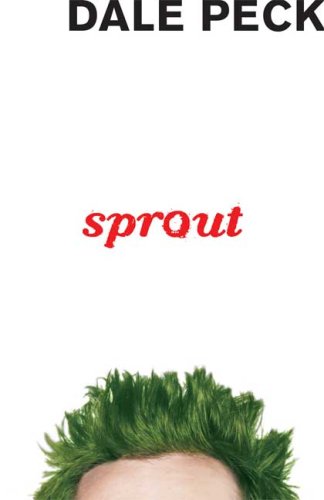All Nonfiction
- Bullying
- Books
- Academic
- Author Interviews
- Celebrity interviews
- College Articles
- College Essays
- Educator of the Year
- Heroes
- Interviews
- Memoir
- Personal Experience
- Sports
- Travel & Culture
All Opinions
- Bullying
- Current Events / Politics
- Discrimination
- Drugs / Alcohol / Smoking
- Entertainment / Celebrities
- Environment
- Love / Relationships
- Movies / Music / TV
- Pop Culture / Trends
- School / College
- Social Issues / Civics
- Spirituality / Religion
- Sports / Hobbies
All Hot Topics
- Bullying
- Community Service
- Environment
- Health
- Letters to the Editor
- Pride & Prejudice
- What Matters
- Back
Summer Guide
- Program Links
- Program Reviews
- Back
College Guide
- College Links
- College Reviews
- College Essays
- College Articles
- Back
Sprout by Dale Peck
When I first bought this book, intending to read it on my eight-hour flight home the next day, I made the mistake of glancing at the first chapter before putting it in my bag. The book never made it to my bag. I was immediately hooked, and instead of reading it on the plane, I sat down and read it straight through. When my family decided they wanted to shut off the lights in the hotel room and go to bed, I moved into the bathroom and continued reading.
Sprout has all the makings of a clichéd teenage coming-of-age story in the setup (gay boy with dead mother gets dragged from home on Long Island to Kansas by alcoholic father), and in fact is a teenage coming-of-age story- but it’s not the one you expect. The protagonist, nicknamed Sprout for his green-dyed hair, doesn’t struggle with being gay; that’s not what the book is about. His sexuality is a plot-significant but not plot-central characteristic, in the same vein as, say, the klutziness of your stereotypical chick-lit heroine. Sure, it’s there, and it’s definitely necessary to the storyline, but the fact that Sprout is gay is just a fact, another defining characteristic, and not the focus of what happens over the course of the several months (and several years, if retrospective descriptions count) described in the novel. Same with the alcoholic father and dead mother. They are included for a reason, but they are not what the book focuses on.
The real charm of Sprout is the narration- the story is seen, in first person, through the eyes of a sarcastic, intelligent teenage boy. The premise is sort of that parts of the book make up the essay he writes for a Kansas state essay contest (another of these plot-significant but not plot-central details). Sprout as narrator elicits both amused smirks and understanding nods from the reader; he is easy to relate to, and his wry humor (such as chapter titles like “Rural gay boy, party of one”) makes the book very enjoyable. It is a unique book among young-adult titles, in that it accepts the reality of the life of a gay teenager, rather than the soap-opera dramatic version we usually see in which everything has to revolve around the character’s sexuality.
Since buying Sprout about a year ago, I’ve read it probably five times. It is an excellent read with enduring appeal. Even if you, at first glance, think you have nothing in common with Sprout, you will be captivated, entertained, and maybe even a little bit changed after reading this book.
Similar Articles
JOIN THE DISCUSSION
This article has 0 comments.

